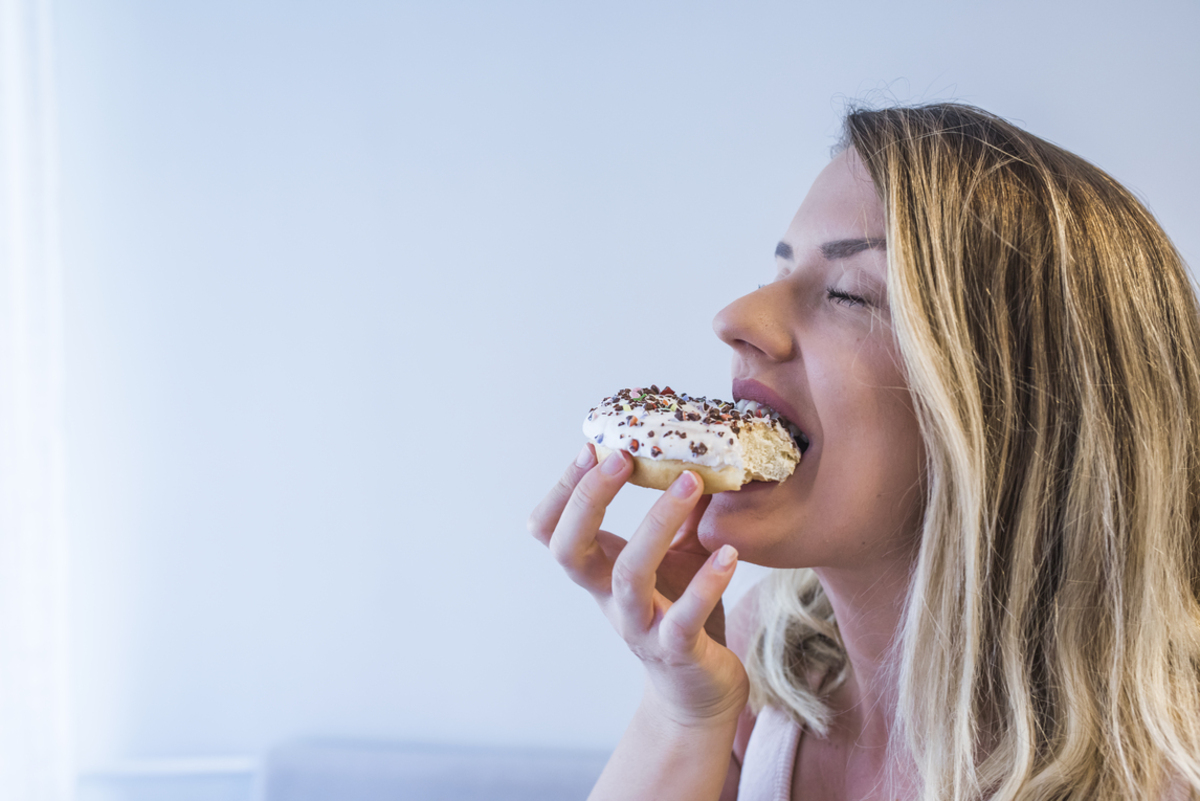Anyone hoping to lose more than a few kilos is going to have to make dietary adjustments, since research has shown that exercise alone won't take you much further than that. For most people, that's not easy — no matter how you're approaching weight loss, there will be times when you really crave food. You may crave more food than your calorie budget allows, or foods you've told yourself you wouldn't be part-taking in.

Don't commit to an unrealistically strict diet
I was on this diet that involved particularly small portions of foods I found particularly unappealing once, for about a week. I could think about nothing but food for the duration of this extremely unpleasant ride, and this exercise in self-denial came to an abrupt end with pizza binges and weight gain. The experience, I think, illustrates how a lot of people feel about weight loss diets in general.
The thing is that weight loss diets don't have to be like this. You're going to lose weight if you burn more calories than you consume — about a kilo a week with a daily calorie deficit of around 500, in fact. Note that this bit of scientifically-proven information doesn't have any footnotes that exclaim that you can't lose weight if you have that occasional cream-cheese bagel or that piece of birthday cake!
Some useful strategies to prevent and cope with food cravings while you're trying to lose weight
If you've heard some of these before and think they're leaning towards cliché, you're right — but that's because they actually do work. I was going to say that you have nothing to lose by giving them an honest go, but that wouldn't be true. And that's the entire point.
- When you're craving food, down a big glass of water first. We often think we're hungry when we're really thirsty. Increasing your water intake has been proven to aid weight loss.
- Many people get more than enough protein through their natural diets, but not everyone does. Older people and vegetarians or vegans are particularly at risk of being low on protein. The thing is, protein keeps you fuller for longer than any other macronutrient. I speak from personal experience when I say that even the tastiest slice of cake just doesn't look that appealing after a big protein shake. If you need more protein in your diet, add it. You'll see your cravings go down.
- Use smaller plates, so it looks like you're having more food. It really does go a long way towards tricking your brain into not wanting more than your body actually needs.
- Eat more slowly, savoring every bite, and chew well. People who wolf their food down just don't have enough time to realize they're actually full.
- Make sure the food you eat actually tastes good. Few people are going to feel happy eating an egg with a side of cucumber and some cottage cheese with a side of radishes for lunch. A monotonous, boring, diet is associated with weight loss failure. Eat things you enjoy. Don't shun seasonings. Make sure your diet is varied, which helps you hit your vitamin and mineral targets, too.
Those are all practical steps you can start implementing any time you're ready, but cravings have a psychological side, too, and it may take some other strategies to deal with that part. You may have heard that it takes around 21 days to form a new habit, but one weight-loss related study showed that many people take about 10 weeks to get into a new routine.
You may find the kilos fly off when you just start your weight loss efforts, spurred on by the excitement of something new, but you soon get bored and start wondering why you're really saying no to that cake or that beer. Instead of making radical changes right away, try to set smaller and more manageable goals.
You're going to stick to that calorie budget your counting app has set you up with, but you can still have an early morning coffee with milk and sugar, or a cookie at lunch, or whatever. You can have that monthly restaurant meal with your family, but you're going to attend pilates twice a week as well. Small changes are more likely to be successful, and success will motivate you to stay on the path. Keep making small changes and sticking to them, and habits that are no longer difficult will begin to form.
- Photo courtesy of SteadyHealth


Your thoughts on this